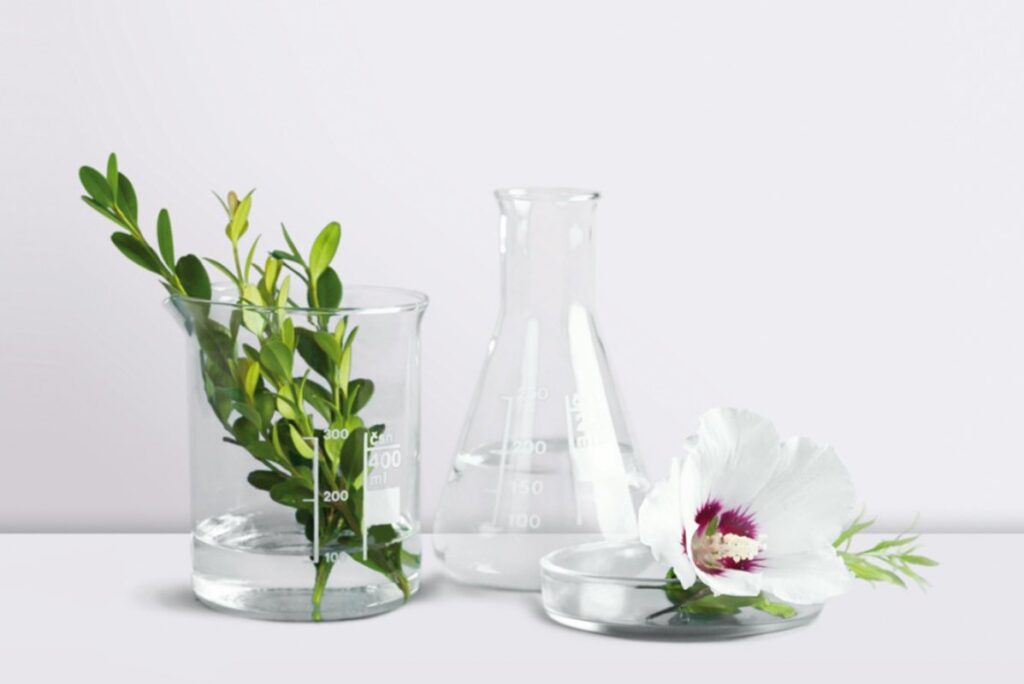L’Oréal to Use Fermentation-Derived Ingredients in Beauty & Personal Care Range
4 Mins Read
L’Oréal has entered a multi-year partnership with biotech startup Debut to develop fermentation-based ingredients for its products, as part of its sustainability goals.
The world’s largest cosmetics brand is turning to fermentation to meet its climate targets.
French beauty giant L’Oréal has expanded its partnership with Californian biotech leader Debut to develop over a dozen bio-identical ingredients via advanced fermentation.
The goal is to replace the conventionally sourced ingredients currently used in L’Oréal’s global beauty and personal care brands across the skin, hair, colour cosmetics, and fragrance verticals, such as Maybelline, Garnier, Kiehl’s and NYX Cosmetics.
The collaboration is the first joint announcement by the two companies since L’Oréal led Debut’s $40M Series B investment round through its VC arm Bold a year ago.
Debut will leverage fermentation to replace L’Oréal ingredients

Debut will create new bio-based ingredients using proprietary advanced biomanufacturing processes that combine fermentation and cell-free technology to replace conventional production methods.
“We are partnering with L’Oréal to create the exact same ingredients that are used in amazing products worldwide, but the same way pretty much that you brew beer,” Debut founder and CEO Joshua Britton told WWD.
“Instead of those cells floating around a beer tank that kick out alcohol or wine or beer or sake, we go in and use our biologists to say: ‘No, now you’re going to create this ingredient,’ and that ingredient is one of many that L’Oréal uses in their formulations. But instead of it being made through petroleum or cultivation, now it could be made through this biological approach, which is far more sustainable,” he added.
Debut claims its biotech processes can unlock “a new generation of cosmetic bioactive ingredients” and enable not just enhanced sustainability credentials, but also supply chain transparency, safety, purity, consistency, quality, and science-backed data.
It will take about two to three years before these novel ingredients will begin replacing incumbent ones in L’Oréal products. Guive Balooch, global managing director of Augmented Beauty and Open Innovation at L’Oréal Groupe, noted that the adoption of breakthrough technology would allow the company “to drive the creation of more sustainable and effective products that meet the demands of our consumers and fulfils our duty of care for the planet”.
Partnership to aid L’Oréal’s climate goals

The global beauty and personal care industry is currently valued at $646B, but it has a major impact on climate change, thanks to the widespread use of plastic, packaging waste, and deforestation-linked sourcing. Raw materials alone account for about 30-50% of the sector’s emissions, according to the Carbon Trust.
As the largest company in the space, with over $44B in sales last year, L’Oréal has a responsibility to lead the sector’s decarbonisation. The company has committed to cutting scope 1 and 2 emissions in half and reducing emissions from consumer use by 25% by 2030 (from a 2016 baseline).
And despite production volume increasing by 12% since 2019, it has reduced emissions from its operated sites by 74%, thanks to its commitment to using 100% renewable energy by next year. It is also the only company to have received an A score for eight consecutive years on all three rankings by the Carbon Disclosure Project: fighting climate change, sustainable water management, and forest preservation.
Additionally, by 2030, the cosmetics behemoth aims to have fully eco-designed formulas that respect aquatic ecosystems, with 95% of its ingredients derived from renewable plant-based resources or abundant minerals.
“We’ve now started this journey of working with the best people outside through our open innovation teams to be able to find a way to reach our commitments,” Balooch told WWD. “We have this knowledge of beauty, science, skin, hair and makeup, and we want to work with partners in the biotech industry like Debut that are allowing us to scale it. They have the innovation and they have the scale, and they do it in a way where they’re using new processes that are cell-free and innovative.”
L’Oréal’s partnership with Debut will appeal to the 46% of consumers buying more sustainably to reduce their environmental impact, as evidenced by a 20,000-person global survey earlier this year. It found that 80% are happy to pay more for them for more climate-friendly products, with an average price premium of 9.7%.
One place where the company does leave a little to be desired is animal testing. While L’Oréal gave up the practice three decades ago, it does allow third parties to do so in markets where animal testing is required by law. But this is critical to many consumers, with one survey suggesting that cruelty-free is the second-most important purchase driver for beauty products.



